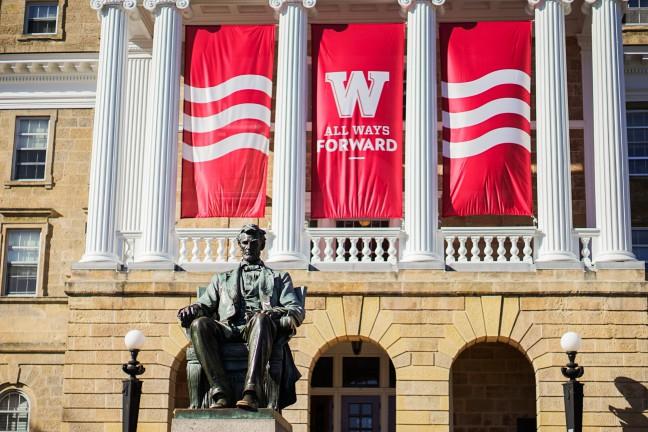The University of Wisconsin System Board of Regents approved a new proposal from the University of Wisconsin Chancellor Rebecca Blank that will allow UW to include transfer students and Minnesota residents when reporting resident enrollment.
The new policy will maintain the Board of Regents requirement that UW must enroll 3,600 Wisconsin freshman but will include a new requirement — UW must now enroll a minimum of 5,200 new in-state undergraduates each calendar year.
UW students seek aid as gap between in-state and out-of-state student funding becomes apparent
This new requirement will be based on a three-year rolling average and defines in-state students as Wisconsin residents and Minnesota reciprocity students. The newly-approved policy said this allows UW’s measurements to be more inclusive.
“The Board of Regents expects UW to continue to honor its commitment to enroll 3,600 Wisconsin freshmen within this broader policy but recognizes UW’s commitment to in-state students is best measured by more than just incoming freshmen and should include reciprocity and transfer students alike,” the report said.
In her announcement of the policy adoption, Blank said UW’s mission of providing a public university for Wisconsin’s high school students in search of higher education remains. Blank also said the new policy reaffirms UW’s commitment to in-state students.
Blank said UW has been admitting around two-thirds of all Wisconsin applicants. She also said programs like Bucky’s Tuition Promise and the Badger Promise make attendance more affordable for Wisconsin students.
Crumbling foundations: Declining enrollment numbers loom over under-funded humanities departments
Bucky’s Tuition Promise covers the tuition and fees for all Wisconsin students who come from families with an annual income under $60,000 for four years. The Badger Promise covers tuition and fees for all Wisconsin transfer students from first-generation families for two years.
Blank ended her announcement by thanking the Board of Regents for approving the policy.
“It allows us to continue to serve a growing share of Wisconsin students, ensures that our classes contain students from across the United States and around the world, and will help us continue to expand our role as an economic engine and talent driver for the state workforce,” Blank wrote.














